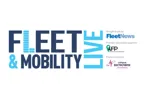Honda is predicting that sales of new cars into the fleet sector will begin to rise significantly in the second half of the year.
Corporate sales fell to just 360,500 new cars by the end of May this year. Over the same period last year, that figure was 480,400.
However, Graham Avent, corporate operations manager at Honda UK is predicting that fleet sales are on the road to recovery.
“We will see a rise in fleet sales towards the end of the year,” he predicts. “We will see more growth into 2010.”
Sales into fleet will still be well below one million this year, but he said that corporate sales will break that barrier again next year.
Of that one million, Honda hopes to capture over 3% of sales.
As with most manufacturers, this year has so far been dismal for Honda. Its year to date figures show its fleet sales dropped by 38%. This is not as dramatic a decline as some of its competitors and Avent is determined to regain any lost sales quickly.
Honda is focusing on the small fleet market and is confident that growth can be achieved by ensuring its dealers have the skills and resources to tempt local businesses into its cars.
The Japanese brand, which has just restarted production at its Swindon plant after six months to rundown surplus stock and re-tool for the new Jazz, has historically relied on the user-chooser market in the corporate sales sector.
But sales here have dwindled, although the company has regained some lost volume by supplying large rental fleets with vehicles on an ad-hoc basis.
“We will supply when they come looking for, say, a hundred cars,” explains Avent. “However, this is not buy-back - they take the risk not us.”
But numbers are small – less than 2,000 a year – so short term rental is not high in the company’s sales aspirations.
Honda has also increased the number of cars it is putting into the Motability fleet. In 2007, it put some 3,000 cars into Motability, that increased to 4,000 last year – a figure that will be equalled again this year.
There are also some opportunities coming from GM’s problems. While Avent thinks many of the solus-badge Vauxhall fleets that are concerned about the current situation could migrate to Ford, he said where there are three or four-badge deals, Honda could find an open door to get its cars onto the choice list.
“We see an opportunity here and we are picking up business,” he said. “There is certainly activity out there.”
But key growth will come from Honda Contract Hire. “This was giving our dealers some 1,200 sales a year,” explained Avent. “Now it is 3,000 a year.”
The contract hire service is aimed at sub-100 vehicle fleets and is sold through a network of 80 of Honda’s key dealers out of a total dealer network of 180.
“We are giving these dealers more strings to their bow so they can go after that SME business,” he said. “We can’t rely on the user-chooser market anymore.”
Now Honda UK has linked up with its dealers’ databases so they focus marketing and supply information direct to their corporate sales managers who can use it to target local businesses.
It gives a consistent message to potential customers and provides them with data on whole-life costs, new contract hire rates and information on new models.
“It sounds simple, really basic, but it is vital that we work with our dealers and coach them rather than police them.”
This focus on local businesses comes as Honda works to grow awareness of its brand with all fleets.
“We have a massive job to grow awareness in the corporate arena.”
Currently this is taking a twin approach, with the “alternative premium brand” message aimed at the user chooser market and a green alternative with the Insight and new Jazz.
The Insight has emissions of 101g/km, which while some 12g/km higher than the new Toyota Prius, is still significantly lower than a petrol or diesel equivalent. Its quoted P11D price is just £15,420, which is almost £3,000 cheaper than the new Prius, and a basic tax payer will pay just £26 a month in company car tax.
Over 1,000 of the hybrids have already been sold, with between 30 and 40% going to the to fleets. Honda’s aspiration is to have that figure hit 60%.
It also says its new Jazz, production of which will begin at Swindon in September, will attract drivers and fleets looking to downsize their vehicles to reduce fuel costs, CO2 emissions and tax liabilities.
These green and premium messages will finally marry with the launch of the CR-Z next spring, which, says Honda, will be a premium, sporty hybrid.


















Login to comment
Comments
No comments have been made yet.